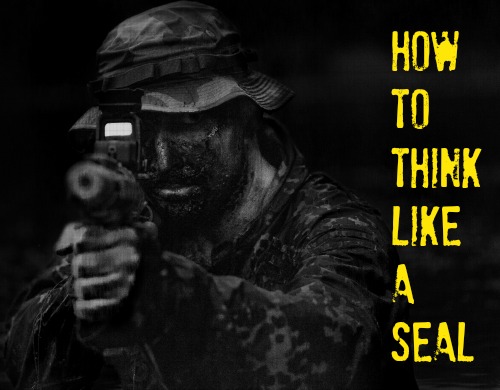
In our haste to get our homes ready, mental preparation is usually pushed far back on the list of priorities. Following a disaster, people experience a variety of reactions, but two emotions they experience the most are fear and panic. Without being mentally prepared for a disaster, many succumb to the traumatic event due to their emotional responses. Inevitably, if you do not mentally prepare your mind for the disaster, fear, distress, shock, indecision, panic will set in and eventually you will give up altogether. I won’t lie to you, this is something that could make or break you in a true disaster and takes lots of training. Folks, mentally preparing yourselves for disasters needs to be a priority.
It’s All Mental, Baby!
First things first, here’s the secret to survival – it’s all mental. You want to be the person who is well prepared, understands the situation and is able to react fluidly to the changes that occur. You DON’T want to be the person who mentally breakdown, stresses and emotionally reacts – this is a dangerous person to be.
Be in control of your mind, don’t let your mind control you.
If you can understand how your mind reacts to disasters, you can learn to quiet it, slow the thinking down and learn to make more rational decisions. This puts you in a more adaptable position to survive and get through the disaster.
SEALs training focuses on this very issue. This video explains the brain’s reaction to fear and panic and how to overcome these natural reactions.
Conquering Fear and Panic with Mental Exercises
Here’s the thing, we all want to avoid getting injured, looted, attacked and left exposed in a dire emergency. These are all fear-based thoughts and although they are a stark reality that some may face, they are also situations that many want to try to avoid thinking about altogether. Stress, fear and anxiety are all considered to be negative and destructive emotions. However, they can be channeled to your advantage and are the very situations we need to think about!
We forget how healthy a little dose of fear is. From a physiological standpoint, fear gives us an edge and is designed to alert your mind and body to the fact that danger may be imminent and then is triggered the sympathetic and parasympathetic response, which is the fight or flight mechanism of your nervous system. It physiologically has to do with epinephrine and norepinephrine produced in your body, as well as your adrenal system. If you do not have control over your mind, fear can break one’s resolve and cause indecision. Remember, it’s all in your attitude!
In order to overcome the fear, you need to gradually/incrementally condition yourself to facing it. Your key to success lies in the way you condition your mind. Don’t let your fear dictate how you live your life. Expose yourself to these fears in a controlled and safe environment. This helps you to overcome them faster. You can read more on how to face your fears to gain empowerment.
4 Ways to Push the Boundaries and Train Your Brain Like a Navy SEAL
- Bring structure to chaos – Making preparedness lists, breaking down emergencies and setting small achievable goals trains the mind and keeps you moving.
- Mental rehearsal – Visualize and practice in your mind what the stressful situation is and how you will survive. That way, when you physically face it, you will have less reaction.
- Self Talk – The way you talk to yourself holds a lot of power in how successful your survival will be. Positive self talk can override the fear signal and likely to overcome the situation.
- Arousal Control – Controlling your breath offsets panic and gets more oxygen to the brain to perform better.
As well, a community or group of like-minded people will help you keep your head in the game, teach you vital skills and help carry the load. A prepper group are more likely to thrive than the “lone wolf” doing things themselves.
Remember your mental self talk. When you start feeling mentally frazzled and more inclined to think negatively, try taking these steps to center yourself. Depending on your schedule you will want to explore ways to meditate and times to conduct your sessions. This will enable you to train yourself to be able to go into “relaxation” mode on command, when you so decide.
As writer, Jeremiah Johnson once wrote, “We can’t win every battle and come out on top; however, we can reduce the amount of the pain and suffering by toughening ourselves mentally. This is one of the ways the human race has survived…as individuals and as a group. We must use that most powerful tool that we have…our mind…and couple it with our hearts and the resolve to win. ”
Ultimately, you need to give yourself time and patience to practice mental preparedness. The time involved is the very reason why so many people put it off. Our minds should constantly be stimulated and exercised. If they are not, in a crisis you could panic and make rash decisions. This is definitely not what we want for you. Over the years, the writing team at Ready Nutrition have written countless articles on how to prepare your mind to be mentally tough for a shtf event.

Quite Inspiring